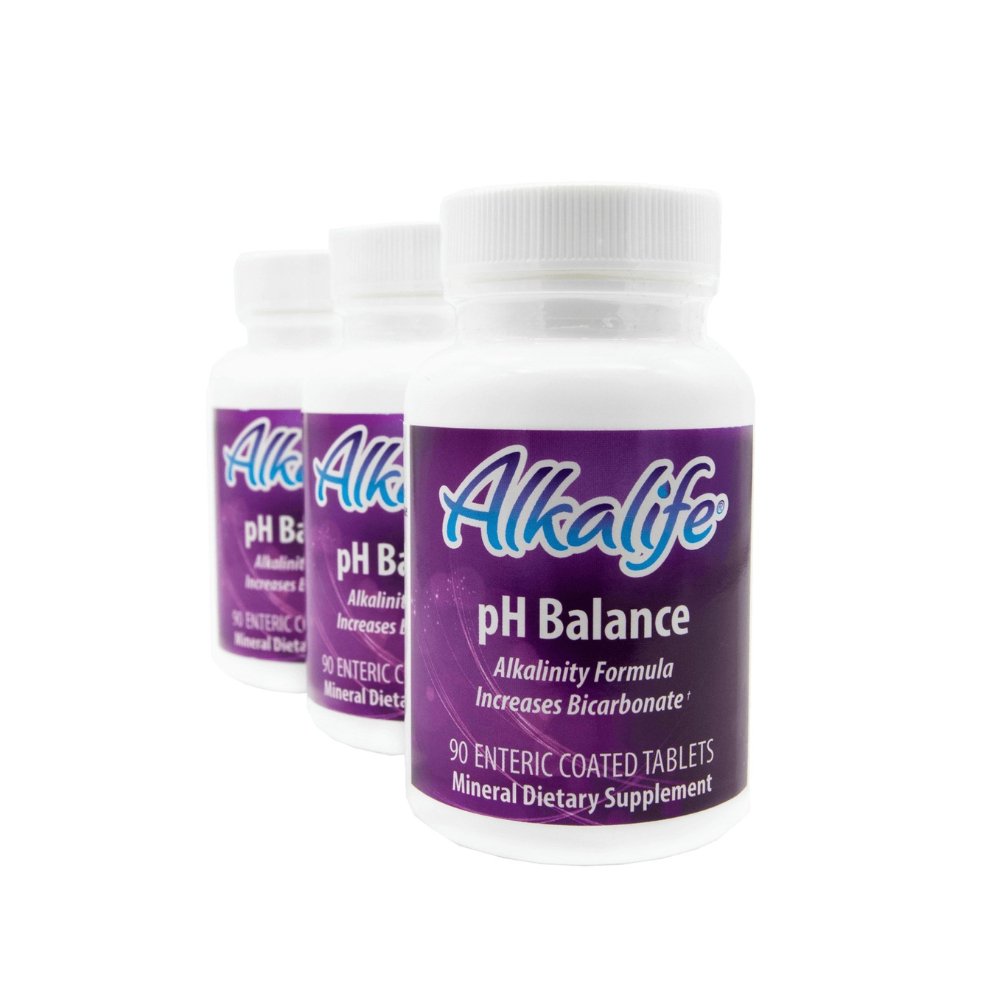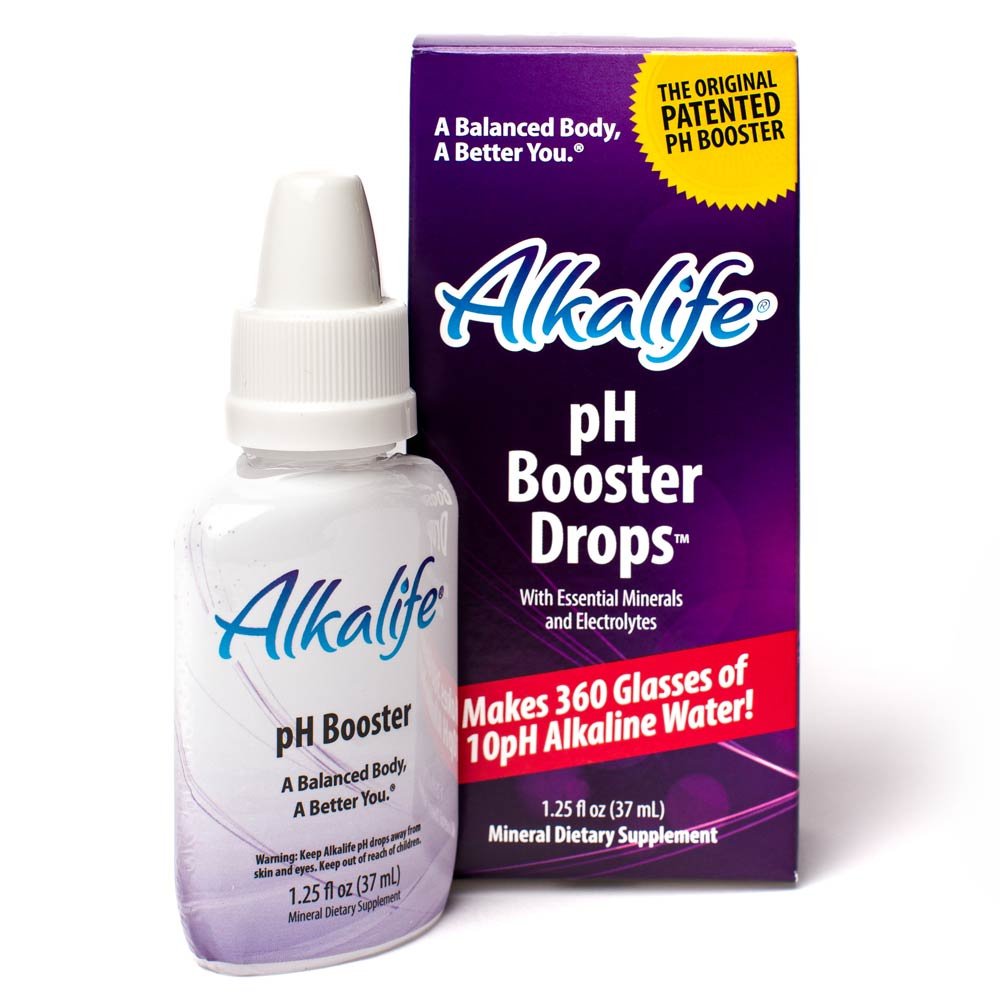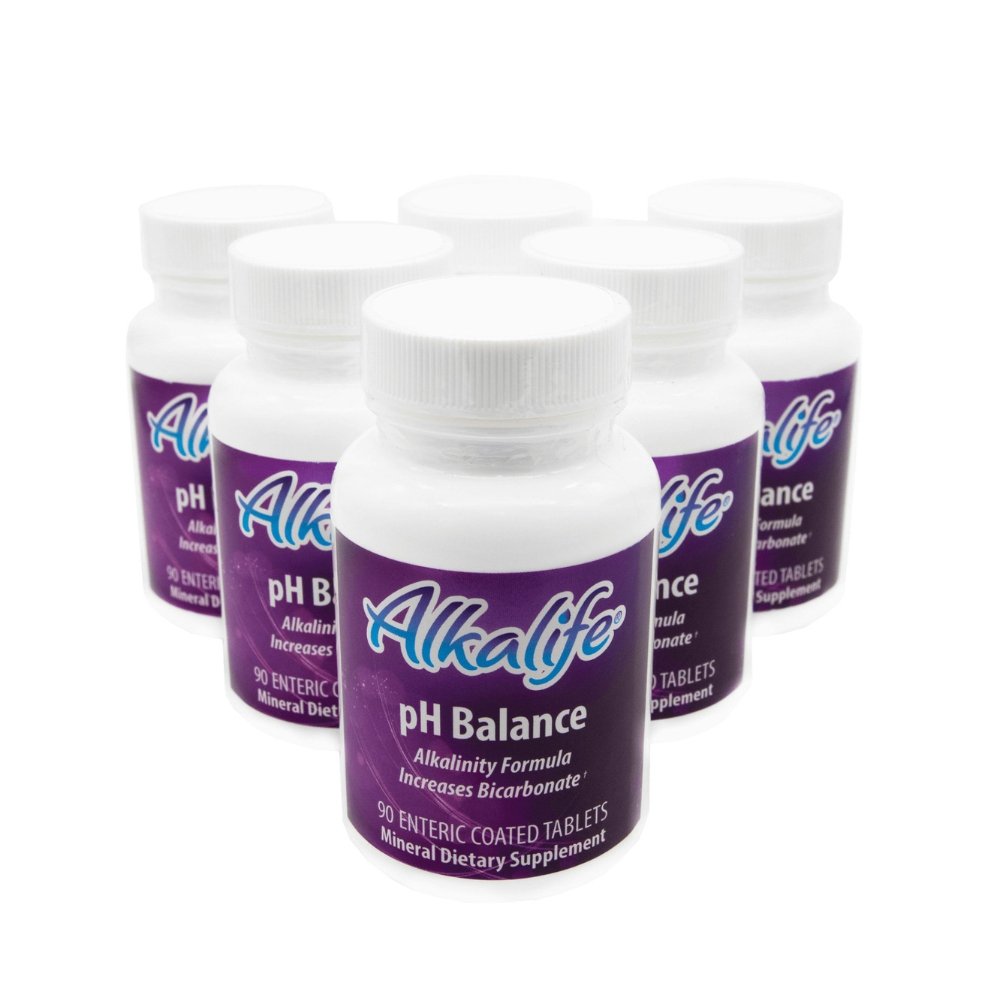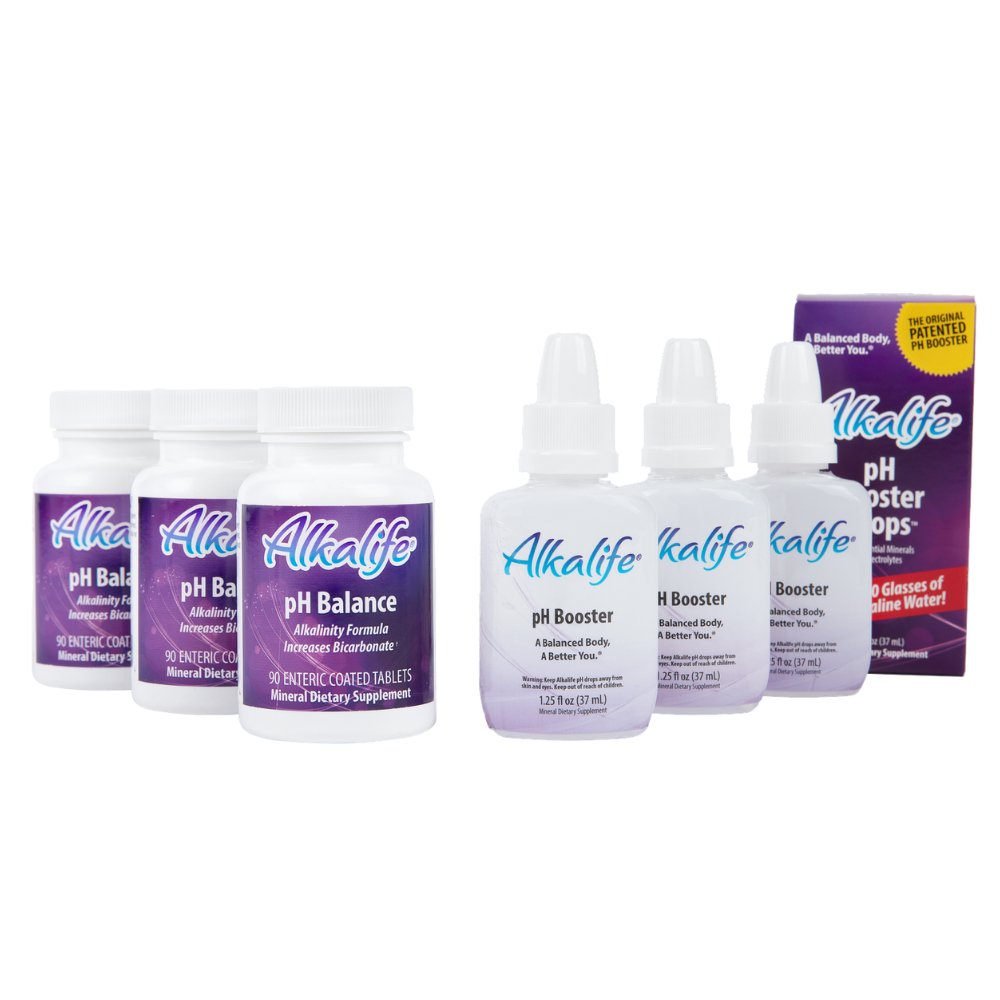Free US Shipping $49+ | 60 Day Money Back Guarantee
Free US Shipping $49+ | 60 Day Money Back Guarantee
Alkaline Diets and Their Effect on Athletic Performance
August 04, 2024 11 min read

Guest blog post written by Laura Watson
What is an Alkaline Diet?
An alkaline diet, also known as the alkaline ash diet or the acid-alkaline diet, is a dietary approach that emphasizes the consumption of foods believed to promote an alkaline environment within the body. The theory behind this diet is that certain foods, when metabolized, can influence the body's pH levels, which in turn can impact various physiological processes.
The premise of an alkaline diet is that the human body functions best when the blood pH is slightly alkaline, typically between 7.35 and 7.45. Proponents of this dietary approach argue that consuming an abundance of alkaline-forming foods, such as fruits and vegetables, can help maintain this optimal pH balance. In contrast, they believe that acidic foods, like processed meats, refined carbohydrates, and sugary drinks, can disrupt the body's pH levels and lead to various health issues.
By focusing on alkaline-rich foods, advocates of the alkaline diet claim that it can provide a range of benefits, including improved energy levels, enhanced recovery from exercise, better bone health, and even a reduced risk of chronic diseases and chronic neck pain. While the scientific evidence supporting these claims is still a subject of debate, the popularity of the alkaline diet continues to grow, especially among athletes and fitness enthusiasts seeking to optimize their performance and overall well-being.
The Science behind Alkaline Diets and Athletic Performance

The underlying premise of the alkaline diet's impact on athletic performance is the idea that maintaining a slightly alkaline pH in the body can enhance various physiological processes that are crucial for exercise and recovery.
One of the key mechanisms proposed by alkaline diet advocates is the potential influence on lactic acid accumulation during exercise. Lactic acid is a byproduct of anaerobic metabolism, and its buildup can contribute to muscle fatigue and the onset of exercise-induced acidosis. Proponents of the alkaline diet suggest that by consuming a diet rich in alkaline-forming foods, the body's ability to buffer and neutralize lactic acid may be improved, potentially delaying the onset of fatigue and enhancing endurance.
Additionally, some research has indicated that an alkaline environment may support the body's ability to recover from body transformation and exercise-induced muscle damage and inflammation. The theory is that alkaline-forming foods can provide the necessary building blocks for the body to repair and regenerate muscle tissue more efficiently, potentially leading to faster recovery times and improved performance in subsequent training sessions or competitions.
Furthermore, the alkaline diet's potential influence on bone health has also been a subject of interest for athletes. Bone health is crucial for athletes, as it supports the skeletal system and helps prevent injuries. Proponents of the alkaline diet argue that by maintaining a slightly alkaline pH, the body may be able to more effectively utilize and retain calcium, a key mineral for bone strength and density.
While the scientific evidence on the direct impact of alkaline diets on athletic performance is still limited and inconclusive, the potential mechanisms described above have sparked significant interest among athletes and sports enthusiasts. As research continues to explore the relationship between diet, pH balance, and exercise, the role of alkaline diets in optimizing athletic performance remains an intriguing area of study.
Benefits of an Alkaline Diet for Athletes
One of the primary benefits of an alkaline diet for athletes is its potential to enhance endurance and exercise capacity. As mentioned earlier, the ability of an alkaline environment to buffer and neutralize lactic acid may delay the onset of fatigue, allowing athletes to push their limits and maintain a higher level of performance for a more extended period.
Additionally, the alkaline diet's emphasis on nutrient-dense, whole foods can provide a steady supply of essential vitamins, minerals, and antioxidants that are crucial for athletic performance. These nutrients can support various physiological processes, such as energy production, muscle recovery, and immune function, all of which are vital for athletes.
Another potential benefit of the alkaline diet for athletes is its impact on hydration and fluid balance. Many alkaline-forming foods, such as fruits and vegetables, are naturally high in water content, which can contribute to overall hydration levels. Proper hydration is crucial for athletes, as it supports thermoregulation, cardiovascular function, and the transport of essential nutrients to working muscles and also helps in skin whitening.

Furthermore, the alkaline diets focus on reducing the consumption of processed, acidic foods, such as sugary drinks, refined carbohydrates, and processed meats, can have a positive impact on overall health and well-being. By limiting the intake of these potentially inflammatory and nutrient-poor foods, athletes may experience reduced inflammation, improved gut health, and better sleep quality, all of which can enhance recovery and optimize athletic performance.
It's important to note that while the potential benefits of an alkaline diet for athletes are promising, the scientific evidence is still evolving. More research is needed to fully understand the specific mechanisms by which an alkaline diet may influence athletic performance and to determine the optimal dietary approach for different sports and individual athletes.
Alkaline Foods to Include in your Diet
Adopting an alkaline diet for athletes typically involves increasing the consumption of a variety of nutrient-dense, alkaline-forming foods. Some of the key alkaline foods that are commonly recommended include:
Vegetables: Leafy greens (such as spinach, kale, and Swiss chard), broccoli, cauliflower, bell peppers, cucumber, and tomatoes.
Fruits: Lemons, limes, avocados, bananas, berries, and melons.
Nuts and seeds: Almonds, walnuts, chia seeds, and flaxseeds.
Legumes: Lentils, chickpeas, and black beans.
Whole grains: Quinoa, brown rice, and whole-wheat bread.
Herbs and spices: Ginger, garlic, turmeric, and parsley.
Healthy fats: Olive oil, coconut oil, and avocado oil.
By incorporating these alkaline-rich foods into their daily meals and snacks, athletes can strive to maintain a balanced pH level and potentially reap the benefits of an alkaline diet.
It's important to note that while certain foods may have an alkaline-forming effect on the body, the overall pH balance is influenced by a variety of factors, including individual metabolism, stress levels, and underlying health conditions. Therefore, it's essential for athletes to consult with a qualified healthcare professional or a sports nutritionist to develop a personalized alkaline diet plan that aligns with their specific needs and goals.
Alkaline Water and its Impact on Athletic Performance
In addition to the consumption of alkaline-rich foods, some athletes and health enthusiasts have also explored the potential benefits of alkaline water for athletic performance.
Alkaline water is water that has been treated or processed to increase its pH level, typically ranging from 8.0 to 9.5. Proponents of alkaline water believe that drinking it can help neutralize the body's acidity, improve hydration, and potentially enhance various physiological processes related to exercise and recovery.
One of the proposed benefits of alkaline water for athletes is its ability to help buffer lactic acid buildup during exercise. Similar to the proposed mechanisms of an alkaline diet, the higher pH of alkaline water may theoretically assist in the neutralization and clearance of lactic acid, potentially delaying the onset of fatigue and improving endurance.
Furthermore, some research has suggested that alkaline water may have a positive impact on rehydration and fluid balance. The higher pH of alkaline water may enhance the body's ability to absorb and retain water, which can be particularly beneficial for athletes who engage in prolonged or intense physical activity.
However, it's important to note that the scientific evidence on the direct impact of alkaline water on athletic performance is still limited and inconclusive. While some studies have shown promising results, others have not found significant differences between the effects of alkaline water and regular drinking water on exercise-related parameters.
Additionally, it's crucial for athletes to be cautious about making drastic changes to their hydration habits without proper guidance. Sudden shifts in water intake or pH levels can potentially disrupt the body's delicate homeostasis and lead to unintended consequences.
As with any dietary or supplemental approach, it's recommended for athletes to consult with a qualified healthcare professional or a sports nutritionist before incorporating alkaline water into their training regimen. A personalized and evidence-based approach is essential to ensure the safety and efficacy of any hydration strategy.
The Role of pH Balance in Athletic Performance
The concept of pH balance and its potential influence on athletic performance is a complex and multifaceted topic that has been the subject of ongoing research and debate.
The human body maintains a slightly alkaline pH range, typically between 7.35 and 7.45, in the blood and other bodily fluids. This slightly alkaline environment is crucial for the proper functioning of various physiological processes, including enzyme activity, oxygen transport, and cellular metabolism.
During exercise, the body's pH balance can be disrupted due to the accumulation of lactic acid and other acidic byproducts of metabolism. This exercise-induced acidosis can lead to various physiological responses, such as decreased muscle contractility, impaired enzyme function, and altered fluid and electrolyte balance.
Proponents of the alkaline diet argue that by maintaining a slightly alkaline pH through dietary means, athletes may be able to better buffer and neutralize these acidic byproducts, potentially delaying the onset of fatigue and improving exercise performance.
However, the relationship between pH balance and athletic performance is complex and not entirely straightforward. The body has several mechanisms, such as the respiratory and renal systems, that work to maintain a stable pH balance, even in the face of dietary or exercise-induced changes.
Moreover, the impact of pH balance on specific physiological processes relevant to athletic performance, such as muscle function, energy production, and recovery, is still an area of ongoing research. While some studies have suggested potential benefits of an alkaline environment, other research has not found a clear correlation between pH balance and improved athletic outcomes.
It's important to note that the body's pH balance is influenced by a variety of factors, including genetics, stress levels, underlying health conditions, and the overall dietary and lifestyle habits of an individual. Therefore, a one-size-fits-all approach to pH management may not be the most effective strategy for all athletes.
Instead, a personalized and evidence-based approach, combined with regular monitoring and assessment by qualified healthcare professionals, is essential for athletes who wish to optimize their pH balance and potentially enhance their athletic performance.
Tips for Incorporating an Alkaline Diet into your Training Routine
If you're an athlete interested in exploring the potential benefits of an alkaline diet, here are some tips to help you incorporate it into your training routine:
Gradually transition: Avoid making drastic changes to your diet, as this can disrupt your body's homeostasis and lead to unintended consequences. Instead, gradually introduce more alkaline-rich foods into your meals and snacks over time.
Focus on whole, unprocessed foods: Emphasize the consumption of whole, nutrient-dense foods, such as fruits, vegetables, whole grains, and lean proteins. Limit your intake of processed, acidic foods like refined carbohydrates, sugary drinks, and processed meats.
Hydrate with alkaline water: Consider incorporating alkaline water into your hydration routine, but be mindful of your individual needs and preferences. Consult with a sports nutritionist or healthcare professional to determine the appropriate amount and timing of alkaline water consumption.
Time your meals and snacks: Strategically plan your meals and snacks around your training schedule to ensure optimal nutrient intake and support your body's recovery processes. For example, you may want to consume a nutrient-dense, alkaline-rich meal before a workout and a recovery-focused meal afterward.
Experiment and monitor: Pay attention to how your body responds to the alkaline diet. Track any changes in your energy levels, recovery times, and overall athletic performance. Be prepared to adjust your approach as needed, as individual responses may vary.
Seek professional guidance: Consult with a qualified sports nutritionist or registered dietitian who can help you develop a personalized alkaline diet plan that aligns with your specific athletic goals, training regimen, and overall health status.
Remember, the alkaline diet is just one potential approach to optimizing athletic performance. It's essential to maintain a balanced and diverse diet that provides all the necessary nutrients your body needs to thrive, regardless of the specific dietary approach you choose to follow.
Common Myths and Misconceptions about Alkaline Diets and Athletic Performance
As the popularity of alkaline diets continues to grow, it's important to address some common myths and misconceptions surrounding their impact on athletic performance:
Myth 1: Alkaline diets can significantly alter the body's pH level: While the alkaline diet emphasizes the consumption of foods that are believed to have an alkaline-forming effect, the body's pH balance is tightly regulated and maintained within a narrow range. Significant and sustained changes to the body's pH level are not easily achieved through diet alone.
Myth 2: Alkaline diets are the secret to unlocking peak athletic performance: While the potential benefits of an alkaline diet for athletes are promising, it is not a magic solution that will instantly transform your athletic abilities. Factors such as genetics, training, recovery, and overall lifestyle play a crucial role in athletic performance.
Myth 3: Alkaline diets are necessary for all athletes: The impact of an alkaline diet on athletic performance can vary greatly among individuals. Some athletes may experience benefits, while others may not see a significant difference. It's important to approach the alkaline diet with an open mind and be willing to experiment to determine if it aligns with your individual needs and goals.
Myth 4: Alkaline diets can completely prevent exercise-induced acidosis: While an alkaline diet may help buffer and neutralize some of the acidic byproducts of exercise, it cannot entirely prevent the body from experiencing exercise-induced acidosis. The body has various mechanisms to regulate pH balance, and these mechanisms are not solely dependent on dietary factors.
Myth 5: Alkaline diets are the only way to optimize athletic performance: There are many effective dietary and training strategies that can contribute to enhanced athletic performance, such as proper macronutrient balance, adequate hydration, and periodized training plans. The alkaline diet is just one approach among many, and it may not be the most suitable or effective option for all athletes.
By understanding and debunking these common myths, athletes can approach the alkaline diet with a more realistic and informed perspective. It's essential to remain open-minded, consult with qualified professionals, and continuously evaluate the impact of any dietary approach on your individual athletic performance and overall well-being.
Case Studies and Success Stories of Athletes Following an Alkaline Diet
While the scientific research on the direct impact of alkaline diets on athletic performance is still evolving, there are a growing number of athletes who have reported positive experiences and success stories after incorporating this dietary approach into their training regimen.
One such example is professional tennis player Novak Djokovic, who has openly attributed his success in part to his adoption of an alkaline diet. Djokovic has credited the alkaline diet with helping him improve his energy levels, recovery, and overall health, which he believes has contributed to his dominance in the sport.
Another case study involves ultra-marathon runner Rich Roll, who has been a vocal advocate of the alkaline diet. Roll has shared his personal journey of adopting an alkaline-focused diet and the positive impact it has had on his endurance, recovery, and overall athletic performance. He has become a prominent figure in the endurance sports community, inspiring others to explore the potential benefits of the alkaline approach.
In the realm of team sports, the NBA's Los Angeles Lakers have also incorporated alkaline-rich foods into their players' diets. The team's nutritionist has emphasized the importance of maintaining a balanced pH level to support the players' energy, recovery, and overall well-being, which they believe can contribute to their on-court success.
While these case studies and success stories are anecdotal in nature, they do provide a glimpse into the potential benefits that some athletes have experienced by adopting an alkaline diet. It's important to note that individual responses can vary, and the success of any dietary approach should be evaluated within the context of each athlete's unique needs, goals, and overall training and lifestyle factors.
As the scientific research continues to evolve, it will be crucial to closely examine the specific mechanisms by which an alkaline diet may influence athletic performance and to determine the optimal dietary approach for different sports and individual athletes. Nonetheless, these case studies serve as inspiring examples of how some athletes have found success in incorporating the alkaline diet into their training and recovery regimens.
Also in News

Hydration and Mental Clarity: Does pH-Balanced Water Affect Focus
December 01, 2025 6 min read
Read More
From Sleep to Sweat: How Your Daily Hydration Impacts Overall Wellness
November 11, 2025 5 min read
Read More





